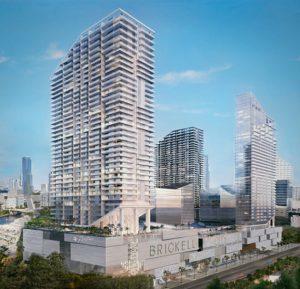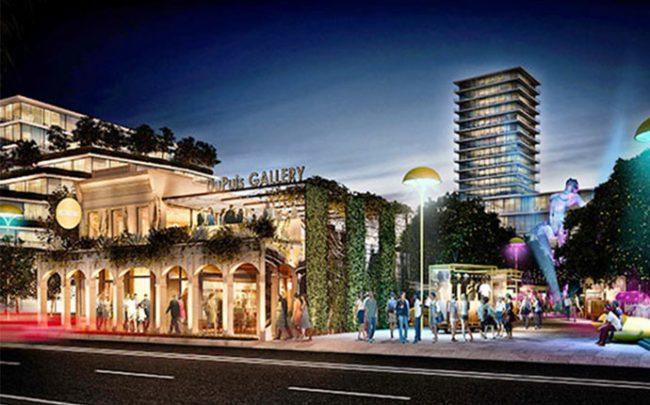In Miami, property owners who control more than 9 acres of land can apply for a wide array of zoning changes. They’re called Special Area Plans, or SAPs, and the legislation has allowed for massive, planned projects like Brickell City Centre, River Landing Shops & Residences, the redevelopment of the Miami Design District, and the expansion of the Miami Jewish Home. It has also allowed for future mega-projects like the Magic City Innovation District in Little Haiti, Miami Produce Center in Allapattah, and Mana Wynwood.
On Jan. 15, the city of Miami’s Planning, Zoning and Appeals Board will discuss proposed legislation that could do away with SAPs altogether.

Rendering of Brickell City Center
The board voted Wednesday to discuss a rule at its Jan. 15 meeting that would recommend that the city remove SAPs from the Miami 21 zoning code. In the 8 to 1 vote, board member Chris Collins was the lone dissenter.
The ultimate decision on whether to keep SAPs rests with the Miami City Commission. But even if the resolution isn’t approved, board members hope that it will tell elected leaders that SAPs are not beneficial to Miami’s existing neighborhoods and residents.
“I don’t want to send them a weak message,” said the resolution’s proposer, board member Alex Dominguez. “Either get rid of the damn thing … or let us move on.”
Several residents and community activists said SAPs are threatening neighborhoods, clogging roads with additional traffic, and speeding up gentrification. At the very least, community activists want a moratorium on future SAPs until regulations are put in place that govern development and require that affordable housing be offered in exchange for zoning.
“When I sell my home, I will have to leave because I will not be able to afford to live here,” said Jordan Levin, who lives in a house in Buena Vista East that she bought 20 years ago. “Please put a moratorium on these things. They’re the Godzillas of development. Development should not just be for the developers. Development should be for the city.”

Rendering of Magic City
Sue Trone, the city’s chief of community planning, argued that SAPs can help parts of Miami move away from the “segregated” uses advocated in the city’s 1959 comprehensive plan into a more mixed-use, pedestrian-friendly environment. And while reforms are needed, Trone argued that SAPs can “do a lot of good for the city.” Land use attorney Neisen Kasdin also begged the board not to “throw the baby out with the bath water” and to instead pursue reforms.
Dominguez, though, said it was best if the city rid itself of SAPs as soon as possible. “Time is our biggest enemy. The more time we spend kicking things down the road and having meetings, the more developers are going to develop [SAPs] and we’ll have more traffic and we’ll see more people getting displaced,” he said.
Board member Melody Torrens said stopping future SAPs is “starting to make a lot of sense.” Still, she said the commission might not accept the idea, and while reforms are being debated, developers will continue to push SAPs. “If we’re not going to stop them completely, then we definitely need a moratorium while we go through [the legislation],” Torrens said.
Board chairman Charles Garavaglia agreed with Dominguez that passing a rule ending SAPs would make a stronger impact with politicians. “I just think we should stop SAPs and send that message,” Garavaglia said, “and, ultimately, the commission will do what they want.”
